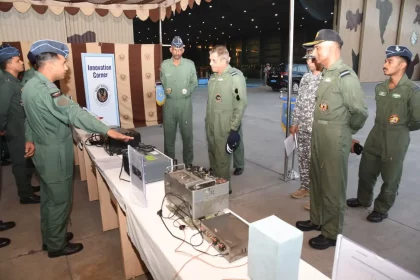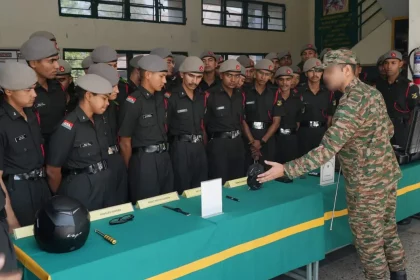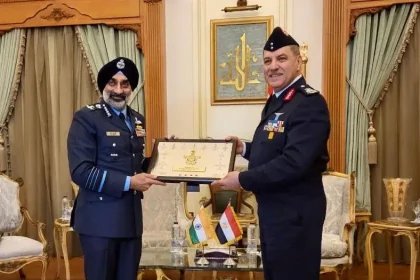Air Marshal Nagesh Kapoor Visits Air Force Station Kailana
AOC-in-C SWAC highlights cyber security, personnel well-being, and reviews living standards.
Air Marshal Nagesh Kapoor Visits Air Force Station Jodhpur
AOC-in-C SWAC reviews operational readiness, commends personnel for professionalism and dedication.
OTA Chennai Cadets Visit Military Intelligence Training School and Depot
Exposure visit familiarises future officers with the critical role and functioning of the Intelligence Arm.
Major Abhinendra Kumar Singh Adjudged Best Student as Company Commanders’ Course Concludes at ASC Centre & College, Bengaluru
Rigorous training programme reinforces leadership values and professional excellence in Army Service Corps officers.
Air Chief Marshal AP Singh Visits Egypt to Strengthen IAF–EAF Cooperation
CAS holds staff talks, reviews air base operations, and pays tribute at war memorial during official visit.
Captain Ahaan Kumar Wins Bronze in National Eventing Championship
61 Cavalry officer shines at CCN Two-Star Eventing, showcases Indian Army’s growing equestrian excellence.






